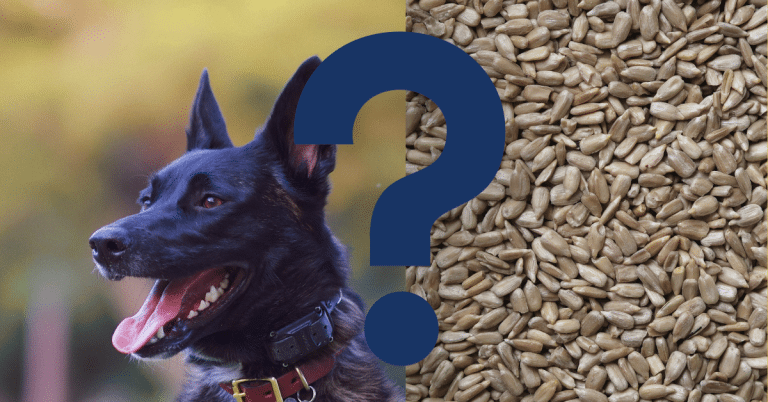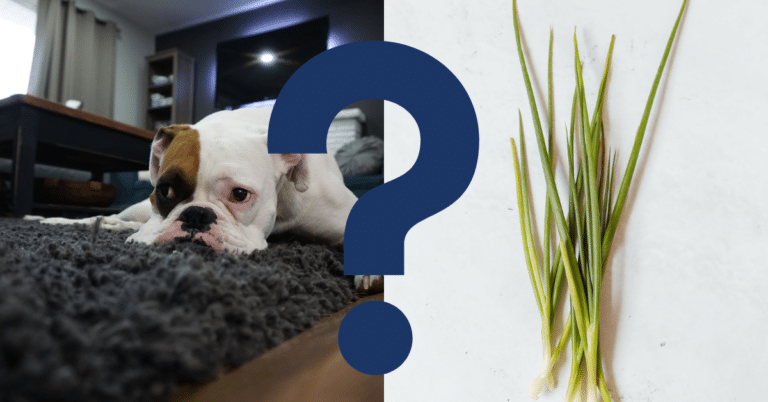Can Dogs Eat Bananas? A Vet’s Opinion

Bananas are a fruit that is a good source of nutrients. It helps control blood pressure and improve heart health. But can you feed bananas to your dog?
Yes, bananas are safe and non-toxic for dogs to eat them. When consumed in moderation, bananas are a good source of fibre, potassium, vitamin C, and vitamin B6, as well as other vitamins and minerals. Bananas can be given to dogs as treats or snacks, but only in moderation. The peel and seeds should also be removed because they can be challenging for dogs to digest. Before adding any new food to your dog’s diet, always check with your veterinarian to make sure it is safe for your particular animal.
Benefits Of Bananas For Dogs
Bananas can offer several advantages when given to dogs in moderation as a nutritious treat or snack. The advantages of bananas for dogs are described below in more detail:
Nutritional Value
Bananas are an excellent source of fibre, vitamins, and minerals. They contain vital nutrients that promote a dog’s overall health, including potassium, vitamin C, and vitamin B6. While vitamins C and B6 strengthen the immune system and act as antioxidants, potassium is crucial for the health of muscles and nerves. Vitamin C also plays an antioxidant role.
Digestive Health
Bananas’ high fibre content can aid in promoting dogs’ healthy digestion. Fibre helps improve gut health, regulate bowel movements, avoid constipation, and ease bloating. Additionally, it may give dogs a sense of fullness, which could aid in weight management.
Energy Boost
Fructose, a naturally occurring sugar in bananas, can give dogs an immediate and healthy energy boost. It may benefit energetic dogs or dogs participating in physical activities like training, playing, or exercising.
Low In Fat
Dogs, particularly those on a low-fat diet or prone to weight gain, may find bananas a healthy alternative. Bananas should be consumed in moderation to prevent too many calories as they contain natural sugars.
Palatability
Most dogs find bananas to be delightful and savour their sweet flavour. Unlike store-bought dog treats, which may include additional sugars, artificial flavours, and preservatives, bananas can be a tasty and nutritious substitute.
Vitamins And Antioxidants
Vitamin C, abundant in bananas and an antioxidant, helps assist a dog’s immune system by scavenging the body’s dangerous free radicals. In addition to promoting general health and well-being in dogs, antioxidants can help lower their chance of developing chronic disorders.
Despite the advantages, it’s crucial to remember that dogs should only be given bananas in moderation as part of a balanced diet. Dogs who consume too much of any food, even bananas, may experience digestive distress, an upset stomach, or other health problems. Before adding any new food to your dog’s diet, always check with your veterinarian to ensure it is secure and suitable for your pet, considering their age, size, breed, and any underlying health concerns.

How To Safely Give Bananas To Dogs
Here are some thorough instructions on how to give dogs bananas without harm:
Select Ripe Bananas
Select ripe bananas that are yellow and free of any green flecks. Overripe bananas may be more sugary and too mushy for your dog to enjoy and have a greater sugar level.
Remove Banana Peels And Seeds
Banana peels are difficult for dogs to digest and may result in stomach pain, so remove the peel and seeds. Always peel bananas before offering them to your dog. It’s recommended to remove any seeds from bananas before giving them to your dog because they may contain tiny seeds that pose a choking risk or create stomach problems.
Slice Or Mash The Banana
Depending on the size of your dog, you may either slice or mash the banana to make it easier for your dog to eat. While larger dogs can manage more significant bits, smaller canines may benefit from smaller pieces.
Feed In Moderation
Bananas are healthy for dogs to consume but should only be given occasionally due to their high sugar content. An upset stomach, weight gain, or other health problems might result from too much sugar. Bananas shouldn’t account for more than 10% of your dog’s daily caloric intake. For medium- to large-sized dogs, 1-2 thin slices, or 1/4 to 1/2 of a banana, are average serving sizes for bananas. And smaller amounts for smaller dogs.
Include In A Balanced Diet
Treat bananas as an addition to your dog’s balanced and complete diet rather than a substitute for their typical dog food. Ensure your dog’s food is balanced overall and fits its unique nutritional requirements based on age, size, breed, and activity level.
Watch For Allergic Reactions
Although uncommon, some dogs may experience allergic reactions to bananas or other fruits. After giving your dog bananas, keep an eye out for any symptoms of an unpleasant reaction, such as vomiting, diarrhoea, or behavioural abnormalities. Stop giving bananas if you experience strange symptoms, and then talk to your veterinarian.
Avoid Unripe Bananas And Banana Peels
Unripe bananas can be uncomfortable for dogs’ digestive systems to digest and should be avoided. Additionally, because they can be challenging for dogs to digest, banana peels should not be given to them.
Consult With Your Vet
As usual, it’s advisable to seek advice from your veterinarian before introducing any new food, including bananas, to your dog’s diet. Your veterinarian can offer tailored advice based on your dog’s health demands and dietary requirements
Remember that moderation is crucial when giving dogs bananas or other human foods. Maintaining a balanced and suitable food for your dog is crucial. It would be best to watch for any changes in their health. Ask your veterinarian for advice if you have any worries regarding the diet or health of your dog.
Will Bananas Make A Dog Sick?
In moderation, bananas are typically safe for dogs to consume, but eating too many or too rapidly can upset certain dogs’ stomachs or create digestive problems. If consumed excessively, bananas’ high sugar content can cause weight gain or a rise in blood sugar. Additionally, certain dogs might be sensitive or allergic to bananas or other fruits, resulting in unpleasant side effects like vomiting, diarrhoea, or gastrointestinal pain.
It’s crucial to remember that each dog is unique, and what may be suitable for one dog may not be for another. It is always advised to gently introduce any new food, including bananas, into your dog’s diet and observe how they react. After giving your dog bananas, stop giving them if you observe any signs of discomfort or stomach disturbance. Then, ask your veterinarian for more advice. It is generally safe to give bananas to dogs in moderation as part of a balanced and adequate diet while also considering your dog’s health requirements, size, age, and activity level. To maintain your dog’s well-being, it’s ideal for getting personalized guidance on nutrition and health from your veterinarian.
Can dogs eat banana variations?
Most banana varieties, including ripe or frozen bananas, can be safely offered to dogs in moderation if properly prepared and served. It’s crucial to remember that different banana varieties could require extra attention when fed to dogs. Here are a few examples:
- Ripe Bananas
- Frozen Bananas
- Banana Chips
- Banana Baby Food or pureed bananas
- Banana Bread or Other Banana-Based Foods

Vet’s Summary
Dogs can consume bananas in moderation without harm, but it’s crucial to remove the peel and seeds and give them the right amount. Picking banana products carefully is important because some, such as ripe or frozen bananas, banana chips, baby food, and foods made with bananas, could include additional sugars or other unsuitable dog components. For personalized guidance on giving bananas to your dog, always read the labels on the ingredients and talk to your veterinarian.
Adding probiotic pills to your dog’s diet may be advantageous if you give him bananas or other foods humans eat. Probiotics are good microorganisms that can assist a dog’s gut and digestive health. Adding these healthy bacteria to your dog’s diet can be simple with probiotic supplements designed just for dogs. However, selecting a dependable probiotic supplement developed especially for dogs is crucial and adhering to the suggested dosage based on your dog’s size and medical requirements is crucial. Before including any supplements in your dog’s food, always check with your veterinarian to ensure they are secure and suitable for your dog.
Videos To Watch
If you are wondering what related foods are good to give your dog, watch this:
And if you want to know what a dog can NOT eat, watch this:






